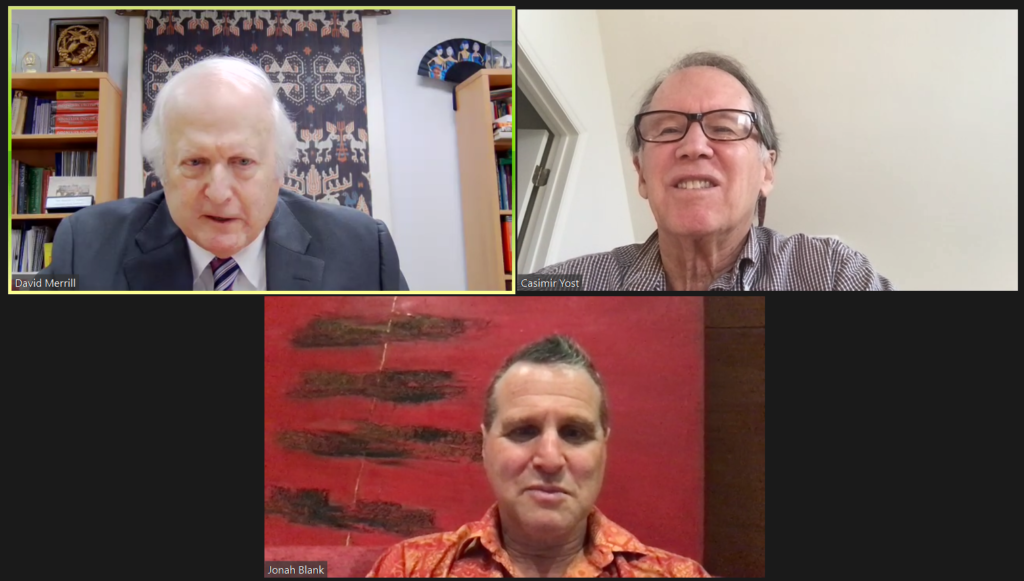Special Open Forum on U.S. Presidential Election: Outlook, Issues, and Significance of Domestic and Foreign Policy
USINDO held a Special Open Forum October 1 on the U.S. Presidential Election: Outlook, Issues, and Significance for Domestic and Foreign Policy, featuring distinguished panelists Casimir A. Yost (Senior Fellow at the Institute for Study of Diplomacy, Georgetown University), and Dr. Jonah Blank (Senior Political Scientist, RAND Corporation). Both are former senior staff of the Senate Foreign Relations Committee.
Outlook: USINDO and the panelists all stated this election is the most consequential in modern U.S. history, going back decades or more. Mr. Yost said recent polls show that if the election were held today, Mr. Biden would win. He has the current advantage at the state level, which is where U.S. elections are primarily decided.
However, under the U.S. Electoral College system, some states matter more than others. As the majority popular vote in states provides a “winner take all” allocation of their specified number of votes in the Electoral College, a small number of people in a small number of closely contested states can decide U.S. elections. Also, the winner of the overall U.S. popular vote may still lose the election in the Electoral College, as has happened twice in this century. For such reasons, plus “October surprises,” all agreed no one can confidently predict the result of this election.

Domestic issues: The speakers said President Trump’s campaign has emphasized strengthening the U.S. economy, including the use of tax cuts and emphasizing fair trade over free trade, as well as law and order issues. Mr. Biden has placed more emphasis on expanding health care coverage and such issues as racial injustice, narrowing income inequality, and climate change, and a greater role of the federal government in dealing with these issues. COVID-19 will of course loom large for both candidates.
Foreign policy issues: The speakers felt President Trump views international issues, including the degree of cooperation with allies, more through the lens of a strict view of the U.S. interest. Former Vice President Biden is more inclined toward viewing alliances as inherently valuable, and toward international cooperation and partnerships to address global issues. The candidates will have different approaches on how the U.S. should navigate China’s rise. They will differ sharply on policy toward Russia and Iran.
